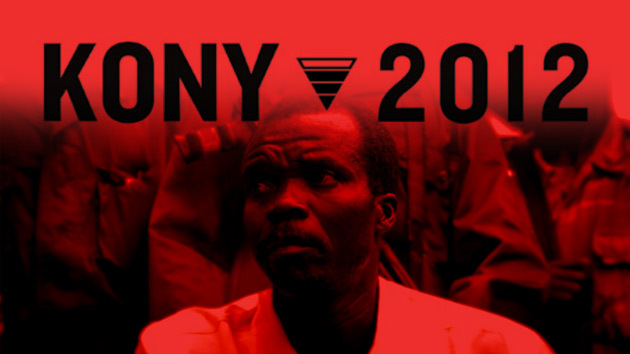Twitter goes public
Twitter, Inc., is now a publicly traded company. The stock market was tripping over itself with excitement over the biggest IPO since Facebook went public May, 2012.
The social-media company set opening stock price at $26, but optimistic analysts say that number could increase, depending on demand once trading begins and what investors are willing to shell out. For example, at this writing, that once $26 has reached as high as $47.
The company stands to raise about $2-billion.
The jury’s out on whether Twitter is worth that much money, and many reflecting on Facebook’s IPO debacle are reticent to predict positive results. But at least one in the know, Business Insider Henry Blodget, sees Twitter as a company yet to come of age, which, he argues, is a good thing for investors.
These kinds of things are interesting to observe. Much of the thirty-plus world remains glued to valuations based on tangible commodities. What Twitter and Facebook deal in is more complicated than that, at least to this now laid-bare writer. [Source: Toronto Star and Atlantic Wire]
Selling Winnipeg
This just in: “Not everyone is sold on the potential of downtown Winnipeg,” according to a CBC article about the Urbanomics 101 event held Wednesday night.
The concise, hard-news lead: Toronto’s Urban Capital hosted the event in an attempt to warm investors to support development in the city’s Sports, Hospitality, and Entertainment District.
Urban Capital, the development firm behind the condos across from MTS Centre, gave potential moneygivers a briefing on the area’s positive return on investment potential.
Read the CBC article, but it wasn’t unanimously bought that downtown is a great place to invest in. It is, but this attitude should not come as a surprise,
But Winnipeg’s loved urban commenter Jino Distasio, directors of University of Winnipeg’s Urban Studies program, said things are turning around in the downtown. [Source: CBC]
Wall doesn’t like the Senate, may be Batman
Saskatchewan Premier Brad Wall has joined Manitoba and Nova Scotia in public opposition to Canada’s senate, repealing legislation regarding electing senate nominees. He then took the opportunity to call for the dissolution of the Senate.
In 2009, a law was passed allowing for elections to vote in senate nominees that would then be passed to the prime minister for consideration. Saskatchewan, apparently, never held such an election.
Manitoba Premier Greg Selinger has got Wall’s back, telling CTV News, “We Don’t need to retain the Senate in its present form. We think it should be abolished and all the political parties in Manitoba support that.”
Wall’s move calling for the Upper Chamber’s abolition is largely symbolic of a general unease that many provinces feel with increasing unanimity. And symbols are not powerless.
“I’m going to show the people of Gotham that the city doesn’t belong to the criminals and the corrupt,” said non other than Bruce Wayne. “People need dramatic examples to shake them out of apathy. I can’t do this as Bruce Wayne. A man is just flesh and blood and can be ignored or destroyed. But as a symbol… as a symbol, I can be incorruptible, everlasting.”
Go Wall! [Source (for news portion): CTV News]
Kony, at large
Remember Kony 2012? It was an Internet sensation, for its initial viral qualities and then again for the all kinds of crazy surrounding Invisible Children cofounder and Kony video director Jason Russell. But the capture of convicted warlord Joseph Kony, the overshadowed reason for the campaign, has yet to happen.
Enters Canadian journalist/explorer Robert Young Pelton, 58: He’s the one; the man who claims to know Africa’s dangerous, rebel-hosting regions well enough to spend January through March looking for Kony. And he’s setup an Indiegogo campaign to do so. The ask: $450,000.
Pelton, host of Discovery Channel’s The World’s Most Dangerous Places, and author of a series of survivalist, has been tracking Kony since 1993.
Kony was charged with 12 counts of crimes against humanity in 2005, along with 21 counts of war crimes, of which included recruiting children under the age of 15 and rape.
Pelton told the National Post it wasn’t a bounty hunt, after presumably being asked about the $5-million tag on Kony’s capture. [Source: National Post]
Arafat may have been poisoned
Palestinian leader Yasser Arafat allegedly died after suffering a massive stroke in 2004. But findings by a group of Swiss scientists point to the possibility of assassination.
The report revealed Arafat had high levels of radioactive polonium in his body, but te scientists could not say whether that was in fact what killed him.
Professor Francois Bochud told a news conference Thursday, Our results offer moderate backing for the theory of poisoning,” a theory long believed by many Palestinians, who point to Israel as the culprit. [Source: BBC]
__
Honourable mention: Follow this link to read an excerpt from Ron Burgandy’s memoir.
__
Toban Dyck worked tirelessly to bring this 5 Things to fruition. Thank him for it when you get the chance.
Fore more follow @tobandyck and @spectatortrib
